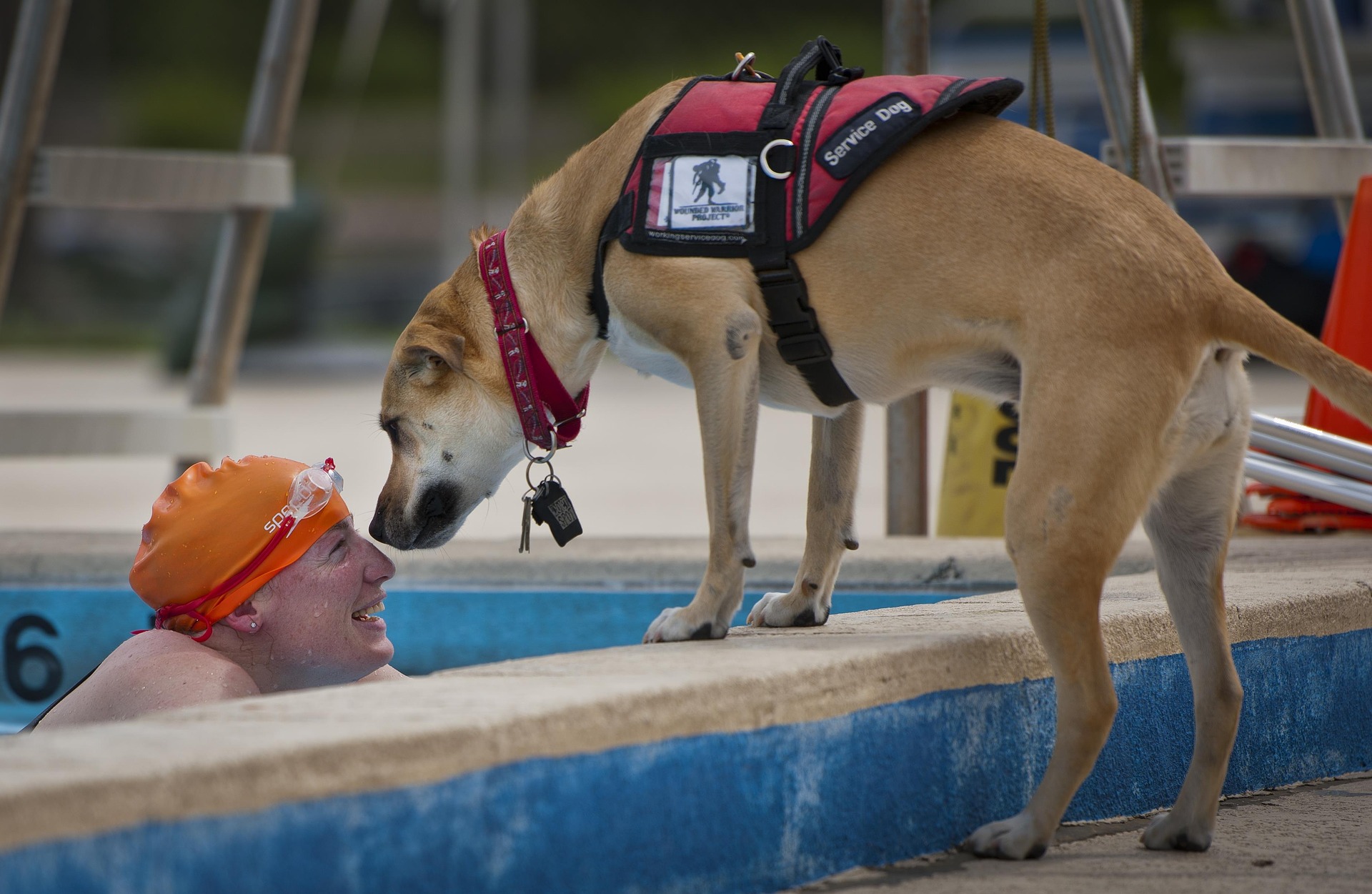By: Janet L.S. Powers, Esq., Fiore Racobs & Powers, A PLC, Orange County office
An owner comes to a board meeting with a very large white rat sitting on her shoulder. She advises the manager and the board that she requires a reasonable accommodation to her disability, and that the rat is an assistance animal who senses when her blood sugar is low, and alerts her to take her medication. While the manager is on his monthly walk-through, he notices a resident in the pool area with a big white goose sitting on the lounge chair next to him. When asked about the goose, the resident states that this is a comfort therapy goose which is a reasonable accommodation to the resident’s disability of general anxiety and fears of being in public.
When the manager reports these requests to the board, the board is astonished and questions whether and under what circumstances the association should allow and regulate assistance animals.
State and federal fair housing laws require that associations make reasonable accommodations to persons with disabilities, including allowing residents to have assistance animals.
What is a “disability?” It is a physical or mental impairment that substantially limits one or more major life activity. This includes people who have a record of such an impairment even if they do not currently have a disability.
What are “assistance animals?” Assistance animals may provide comfort, therapy, support, or other aid to the person with the disability. Assistance animals generally do not provide a service, and are not trained to perform tasks or other kinds of work for the disabled person.
Assistance animals are not pets and cannot be treated like pets.
What kind of verification can an association require regarding the disability and the need for the assistance animal? An association may require the person with the disability to provide reliable verification from a treating physician, counselor, or other person who knows the disabled person’s condition and is able to provide reliable verification of the disability. The person verifying the disability must also be able to state that the animal provides a reasonable accommodation to that disabled person’s disability.
What types of rules and policies may an association adopt? An association may adopt rules regulating several areas, including the request process, the verification process, the limitations on the approval of the requested accommodation and conduct of the assistance animal in the residence and on common area. Specifically, the rules may provide that the assistance animal can’t be a nuisance, and that the resident or another designated person must clean up any animal waste.
The association may also condition how long the assistance animal may reside at the association. Reasonable limits would allow the assistance animal to remain in the association for as long as the person is disabled and continues to reside in the association.
An association may evaluate the request for the assistance animal and consider several factors regarding whether the request is reasonable, and safe for the animal and the person with the disability. Some considerations may include the size and location of the residence/unit. For example, if the unit is very small and located on the second or third floor of a building without an elevator, the board would want to consider and discuss with the resident any concerns with the number of assistance animals in the unit, and the difficulty that some animals, such as a mini-horse, may have with stairs.
An association may also refuse to approve a request for an accommodation based on the repeated refusal or failure of the person with the disability to provide verification of disability and need for assistance animal/reasonable accommodation. An association should attempt to engage in the interactive process with the disabled person prior to any denial of the request.
Certain rules would violate fair housing laws and should not be adopted by an association, including the following: breed specific or species limitations, number of assistance animals by one unit/residence, additional charges “pet” deposits, or additional insurance. There may be very valid safety and health concerns with dangerous animals, like snakes, or exotic animals and these should be discussed with the person with the disability, and also addressed in the verification process. An association may require separate verification that each animal is necessary to accommodate a disability. Think about the TD Ameritrade ad, where the employee, Gary, needs both a comfort pony and a motivational meerkat to reasonably accommodate his disabilities while at work.
The new California Department of Fair Employment and Housing (DFEH) regulations, which are in the process of public comment and adoption, require that the disabled person and the association engage in the “interactive process” to discuss the request for an assistance animal, and talk about such issues as other residents with “competing” disabilities. For example, if a person with a disability requests a large furry dog as an assistance animal, and the owner of the unit next door has severe allergies, there will need to be a dialog between the association and the persons with the disabilities about how to reasonably accommodate their respective disabilities.
In conclusion, associations should consider adoption of reasonable policies and rules to describe how the request, verification and interactive processes will be handled in order to avoid unnecessary misunderstandings and frustrations in the future.
Janet L.S. Powers is a Senior Shareholder at Fiore Racobs & Powers, A PLC, where she practices business and real estate litigation, and provides representation to common interest developments. She can be reached at JPowers@fiorelaw.com.
Reprinted with permission from California Association of Community Managers, Inc. (CACM) CACM Law Journal (Copyright 2017, CACM)

